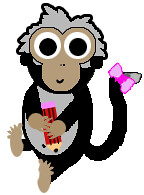2 months ago, I came across this article which accounted the experience of an university student taking teochew classes in the Poit Ip Huay Kuan. Having heard before of such classes from a random current affair program on channel 8, my curiousity was piqued. I searched for classes in my father's dialect Hokkien but came across none. Since I am also half a teochew, this was the next best thing.
Several years before that, I was already beginning to have a stronger in improving my dialect abilities. I came across this website Gaginang.org which was started by a group of Overseas Teochews mainly based in the United States who organize many classes and activities for its members. The interesting thing is that most of them are from Vietnam, Cambodia, Indonesia and Thailand, unlike what we would otherwise imagine them being from mainland China. These Teochew diasporas have further spread its reach to the western hemisphere and unlike in our attempts to homogenize the Chinese population, they have no qualms about promoting their heritage. I suppose, they are the frog in the boiling hot water while we are still languishing in lukewarm levels.
Nonetheless, there has always been much criticism of our stifling of chinese dialects and support for more dialects in media from various sources. Today, this opinion piece "The Dialectics Of Dialect" by Tor Ching Li from TODAY is another example."It was also to "help create a climate in Singapore where our mother tongue is spoken not just in coffee shops but in policy making and matters of higher importance". Why can't the same be said for the use of dialect such as Hokkien, Cantonese, Teochew, Hakka and Hainanese - surely still prevalent in coffee shop chatter?
The writer is lucky that even though she is unable to speak Teochew, she has nonetheless found the abilities to speak cantonese. It's not everyday I see a Teochew or Hokkien movie on television. When I did try to listen to the Teochew news on radio, it passed me by in a smattering of musical drifts. Hokkien songs crack me up and my only use of Hokkien is limited to telling my mom I am home and deciphering Hokkien Ah Beng raps on youtube.
...
Today, the proportion of dialect-speaking Chinese households in Singapore has dwindled from 50 per cent in 1990 to 24 per cent last year, presumably with the passing of the older dialect-speaking generation. The same 2005 household survey showed that Mandarin-speaking Chinese households climbed from 30 per cent in 1990 to 47 per cent. To speak the Government's language, need it be said that dialect has its economic value as well? The Guangdong province in China, for example, where Cantonese is the lingua franca, is now one of the richest in the nation with the highest total Gross Domestic Product among all provinces. Its nominal GDP for 2003 was US$165 billion and increased to US$265 billion last year, and it contributes approximately 12 per cent of China's national economic output.
...
Already, it's my loss that I can't speak my official dialect - Teochew - and I found it frustrating to have missed out on the full essence of certain colourful general election rallies held in dialect this year. Fortunately, I can still speak and enjoy the Cantonese language, thanks to my mother - whose mother was Cantonese, hence making Cantonese in a real sense our "mother tongue" - and catching TVB soap operas from Malaysian TV channels in my childhood. Truth be told, I look forward to the day movies from Hong Kong can be shown in Cantonese, and Canto-pop and Canto-banter are allowed to hit the airwaves.
...
Surely diversity of language can only help diversity of thought - a necessary condition for a vibrant society. But if nothing is done soon to revive the status of dialect in our society
and roots, then there may be no point at trying at all. The mother tongues of our forefathers will die out with their generation. And Singapore will be none the richer for it."
Meanwhile, with my fumbling hokkien, I have brought this monkey on a world tour of Taiwan and Medan, impressing them with my one word wonders. On the other hand, chinese new year has always been a time to embarrass the monkey when all the relatives goo and gaa over my heavily accented attempts at hokkien and my hybrid teo-kien dialect. Apparently my niece and nephew who is spends much time with our teochew relatives can now teach me a few things about teochew!
It's so embarrassing. While I really just want to focus on Hokkien, I decided to enroll myself in a Beginners Teochew class at the Teochew Clan Association. Since I was not able to entice any classmates to join me since they are paranoid about mugging for exams, I decided to brave the unknown alone.
Unfortunately since I am stronger in my Hokkien, my teacher announces on the first day that Hokkien speakers will have the most difficult time learning Teochew because of the deep similarities and influences between the two dialects. Also, we read chinese characters in Teochew while I frantically make my own scrimbblings of monkey phonetics at the side. Every Thursday I come home full of teochew-ridden angst, trying to complain to my mom in Teochew how I am pathetically miserable at the dialect. Last week, after the 2.5hours session, the only time I spoke in dialect to my teacher, I ended up speaking hokkien instead. *tears hair out*
Oh well, my teochew journey continues and it's rather heartening to see some younger faces in the class and at the same time, many of my non-uni friends were all very intrigued and interested to take future classes with me! Many asked if there were Hakka or Cantonese class (which irked me for a full minute) but really I don't know and you guys should be looking out for it yourself! *grin*
I'm still hoping that the Hokkien clan association will start hokkien classes for this hokkien monkey. Or maybe I'll just have to fly myself to Taiwan to master my hokkien!
* "Wa Si Ga Gi Nang" means "I am one of our own (Teochew people)" or as the cow translates it "I belong to this group of (teochew) people". Similarly in Hokkien, the same line would be "Wa Si Ga Gi Lang" which is distinguished from the teochews by the say they say "lang" which means people. Little nuances marks the distinction between the two groups of people which really drives this monkey bonkery confused. In the northern dialect of Mandarin, this would transliterate badly into "我是自己人“ but cow wish to point out that "ga gi nang" has a very specific connotation of belonging. But I am sure my Teochew teacher will have better explanations linking back to the ancient chinese language. Either way, I guess that's the teochews / hokkiens "sense of belonging" and "sense of community" for ya!
Monday, November 27, 2006
Wa Si Ga Gi Nang*
Posted by
Monkey
at
Monday, November 27, 2006
![]()

 I can be contacted at
I can be contacted at 







1 comment:
Hi! Just to let you know, I've come across a website to unite all the Teochew around the globe at www.tcfaces.com. I thought you might be interested in checking it out.
Post a Comment